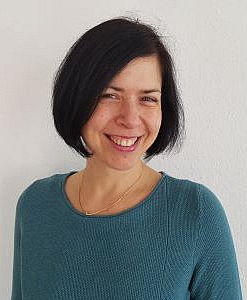Ana Kladnik
Marie Skłodowska-Curie Fellow

Ana Kladnik works on modern European history (particularly East Central Europe), political and socia transformation process of the 20th century, socialism, democratization, nationalism, urban history, and the history of civil society. After being a PhD researcher at the Institute for Contemporary History in Prague, she then worked at the Leibniz Centre for Contemporary History (ZZF) in Potsdam, at the Technical University in Dresden, and at the Institute for Contemporary History in Ljubljana. She was a visiting professor at the University of Pittsburgh, at the University of Liverpool, and for many years she taught at the Charles University in Prague. She has held fellowships in Potsdam, Berlin, Sarajevo, and Jena. Together with Celia Donert and Martin Sabrow, she is a co-editor of the book Making Sense of Dictatorship. Domination and Everyday Life in East Central Europe after 1945, published by the Central European University Press in 2022 (Making Sense of Dictatorship | CEUPress).
A Land of Joiners. A Gender History of Volunteer Fire Departments in a Three-Border-Region of East Central Europe in Times of Political Transformation, 1918-1989
Marie Skłodowska-Curie Action Fellowship, Mar23-Feb25, € 184.000
This project looks at East Central European (ECE) history by focusing on non-state actors and particularly on voluntary associations. Challenging the received view that Western Europe (WE) and the Atlantic World are the authentic cradle of associations and of an appropriate and healthy civil society, e.g. the USA often epitomised as the “nation of joiners”, this project interprets voluntary associations in ECE as variation of and not deviation from a unique-but-universalized WE and Atlantic model. New studies on associational life in ECE suggest that well-established theoretical dichotomies like state/non-state, governmental/civil, public/private need to be overcome and argue that voluntary associations always actively interacted with the political context and contributed to shaping it (Giomi/Petrungaro 2019). This research seeks to revisit these theses by focusing on a particular voluntary association, Voluntary Fire Departments (VFD), which in ECE exists almost uninterruptedly since the mid-19th century under democratic, authoritarian or dictatorial regimes alike. Focusing on social history from below and transnational connections, this research will interrogate the question in what way did political ruptures from the end of the First World War until the end of the Cold War in ECE alter membership structure and gender policies of VFDs as well as how did VFDs interact and react with the political ruptures in regard to social inclusion and exclusion along the lines of gender? The project covers the territories of today's Austria, Hungary, and Slovenia, but more specifically three regions: Burgenland, Vas, and Prekmurje, where the concentration of VFD is the largest worldwide. By seeking to counter the marginalisation of volunteering within the social histories of ECE, and of ECE within the global histories of voluntary associations, the project contributes to the current debates about gender equality and equal participation in the European Union.
LINK to University of Graz Online (UGO)




